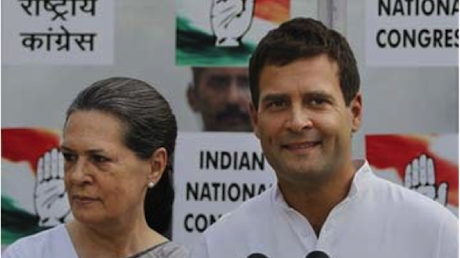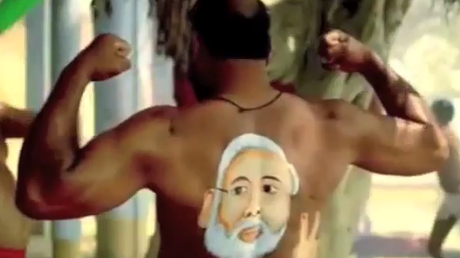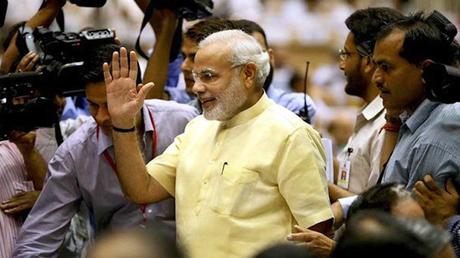By Nicholas Reece and Souresh Roy
Like media the world over, the Indian press is portraying the national election as a battle of personalities. A dual between Rahul Gandhi of the Nehru-Gandhi family and the charismatic BJP leader Narendra Modi. Meanwhile, charistmatic one-time outsider Arvind Kejriwal may spoil either one of the two front runners' campaigns. Kejriwal has created a political sensation in India with his Aam Aadmi Party enjoying meteoric success following its establishment in 2012. But he faces enormous challenges in this 2014 national campaign.
Of course, in a country as huge and diverse as India, the election is much more complicated than simple personality-driven narratives; with a multitude of regional issues and parties likely to decide the result.
Nonetheless, the performance of these key figures will be crucial to the outcome of the 2014 Indian election.
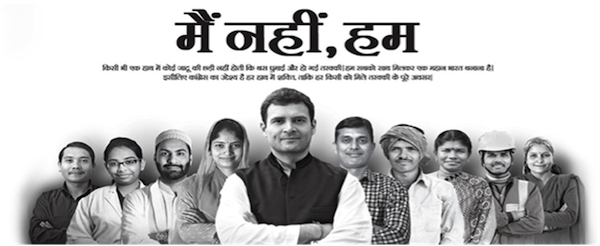
Rahul Gandhi is likely to be Congress Party’s candidate for PM. The party has appointed him the “lead campaigner” for the election.
“Rahul” as he is known in public discussion, was born in 1970. Gandhi is the Vice President of the Indian National Congress party. He served as a General Secretary in the All India Congress Committee. He is the second-ranked member of the Congress Working Committee.
Gandhi is part of the Nehru-Gandhi first family of Indian politics. His father, the late Rajiv Gandhi, had served as the Prime Minister of India and had been President of the Congress Party. His mother, Sonia Gandhi, is serving as President of the Congress. He grew up in New Delhi where his grandmother, Indira Gandhi, was serving as Prime Minister until her assassination in 1984. His father was likewise assassinated in 1991.
Due to security concerns, Gandhi constantly had to shift schools in his youth. He studied abroad under a pseudonym. After obtaining degrees in international relations and philosophy, Gandhi worked as a management consultant in London. He then established a Mumbai-based technology outsourcing firm.
Gandhi was elected to parliament in 2004 and became the vice president of Congress in 2013.
The Congress Party does not formally nominate its candidate for Prime Minister before the election. They argue that a parliamentary election is not like a US style presidential race. Once the election is over if the Prime Minister will be elected by the Parliament. In practice, Rahul Gandhi is the Congress Party’s “lead campaigner” and will be their candidate for PM if they can secure enough votes in the parliament. The party’s election materials present him in this way.
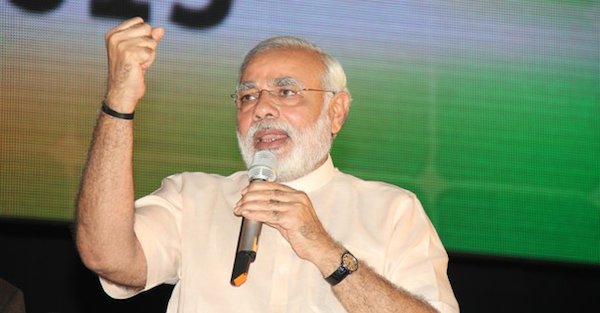
Narendra Modi was born in 1950. He was raised in humble circumstances and his first job was as a tea seller in a railway station.
Modi is the 14th Chief Minister of the state of Gujarat. He is a member of the Bharatiya Janata Party (BJP) and is the party’s prime ministerial candidate for the 2014 Indian general elections.
He rose to prominence as a charismatic public speaker and various roles in the BJP, including as a key strategist for the party in Gujarat state election campaigns, and was a major campaign figure in the 2009 general elections.
Modi first became chief minister of Gujarat in October 2001. In July 2007, he became the longest-serving Chief Minister in Gujarat's history. He is currently serving his fourth consecutive term as Chief Minister.
Modi is described as a Hindu nationalist by media, scholars and himself. He is a controversial figure both within India and internationally. His administration has been criticised for the incidents surrounding the 2002 Gujarat violence. Those events mean that even to this day he cannot get a visa to travel to the United States. He has been praised for his economic policies, which are credited with creating an environment for a high rate of economic growth in Gujarat. However, his administration has also been criticised for failing to make a significant positive impact upon the human development of the state.
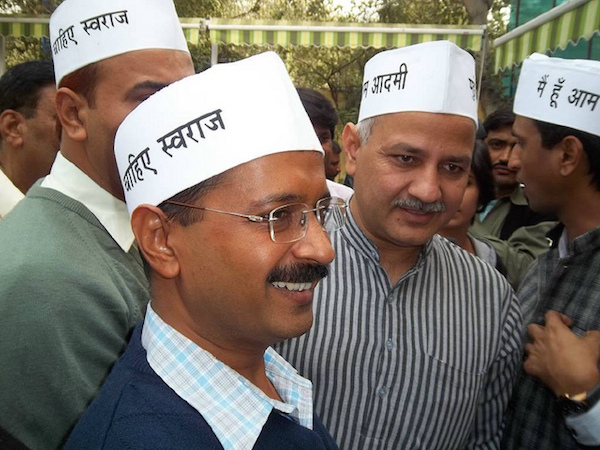
Arvind Kejriwal is the leader of the Aam Aadmi party (AAP) and is likely to be their candidate for PM in the event the party can lead a coalition into government.
Kejriwal was born in 1968. He is a former civil servant who served as the 7th Chief Minister of Delhi for 49 days from 28 December 2013 to 14 February 2014. Kejriwal is a graduate of the Indian Institute of Technology and worked for the Indian Revenue Service (IRS) as a Joint Commissioner in the Income Tax Department.
Kejriwal rose to national prominence for his efforts to enact and implement the right to information laws and tackle corruption.
In 2006, Kejriwal received a major award for his involvement in a grassroots movement using right-to-information legislation in a campaign against corruption. The same year, after resigning from the IRS, he donated his award money as a corpus fund to found a non-governmental organization (NGO) dedicated to tackling corruption.
In 2012, he launched the Aam Aadmi Party, and in a stunning result he defeated Chief Minister Sheila Dikshit in the 2013 Delhi Legislative Assembly election.
Following the election, Kejriwal took office as the Chief Minister of Delhi on 28 December 2013. He resigned 49 days later, on 14 February 2014, stating he did so because of his government's inability to pass his proposed anti-corruption legislation due to a lack of support from other political parties.
In the 2014 election Kejriwal has chosen to run in Varanasi against Narendra Modi, the BJP’s candidate for PM.
THE THREE GODESSES
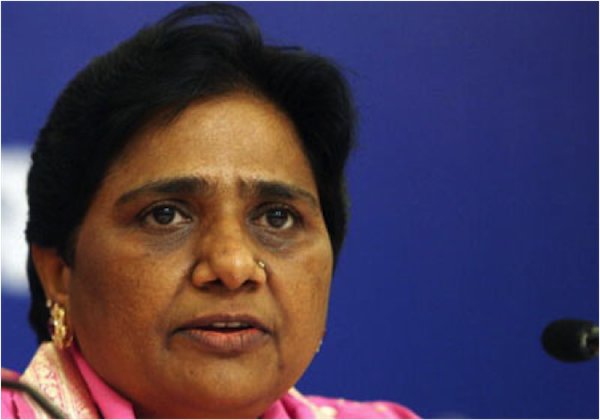
Popularly known as Behen-ji, the meteoric rise of Mayawati in India’s political firmament is nothing short of a miracle. Her emergence as an iconic Dalit leader from humble beginnings who went on to serve as the Chief Minister of India’s most populous state, Uttar Pradesh four times, is not only a reflection of her indomitable character and political acumen but is also an exemplar of why Indian democracy continues to puzzle even the most astute of analysts.
An LLB from Delhi University, Mayawati was ushered into politics by the late Dalit leader Kanshi Ram and after his death she has been the undisputed leader of the Dalit community in the country as the head of the Bahujan Samaj Party. The 2007 elections to the Uttar Pradesh Legislative Assembly in which her party won a decisive victory is regarded as one of the landmark elections in independent India.
In her political life Mayawati has received appreciation as well as criticism in ample measure. A vast majority of backward class people who have been oppressed for generations could for the first time lead a life of dignity since someone from ‘their own’ was wielding power at the highest office of the state. However, allegations of accumulating disproportionate wealth and extravagant spending from the state exchequer on building personal statues, when there were more pressing needs to be addressed, left many people disenchanted. Consequently, she lost the 2012 Assembly elections and her prospects look pretty bleak in these elections since she has failed to consolidate her voting base with many different factions of the Dalit community preferring other parties this time.
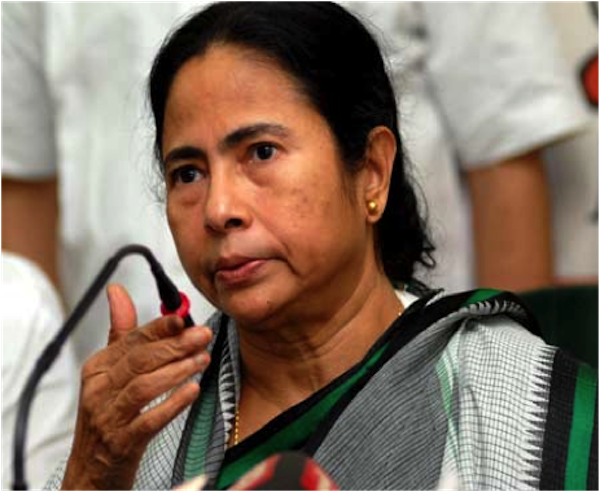
Named as one of the 100 most influential people in the world in 2012 by Time magazine, Mamata Banerjee is the current Chief Minister of West Bengal and head of the All India Trinamool Congress. As an early entrant to politics, she joined the Congress Party when she was in school and rapidly rose up the ranks to be the general secretary of the party’s women’s wing. However, in 1997, she left the Congress Party and started a new political party called the Trinamool Congress.
Prior to becoming the Chief Minister of West Bengal, Mamata Banerjee or Didi, as she is affectionately called, had served as the Union Railway Minister, and had also held the coal and mines portfolio in the previous governments. Her biggest political adversary throughout her political life has been the Left Front government in West Bengal. Finally in 2011, when her party won a landslide victory in the Assembly elections in the state, it marked the end of an era in Bengal politics where the Communists had ruled for an uninterrupted 34 years, until then the longest serving democratically elected Communist government anywhere in the world.
Since her victory, disillusionment with her government in the state has increased and hopes of a radical departure from the old way of politics in Bengal have been dashed. But without any substantial opposition, with the Left completely decimated and still reeling from its 2011 defeat, Mamata is expected to win the majority of the seats in West Bengal in these elections. This self-taught painter and poet, who can be defined as nothing short of a maverick, will be the one to look out for once the results of the elections starts coming in.
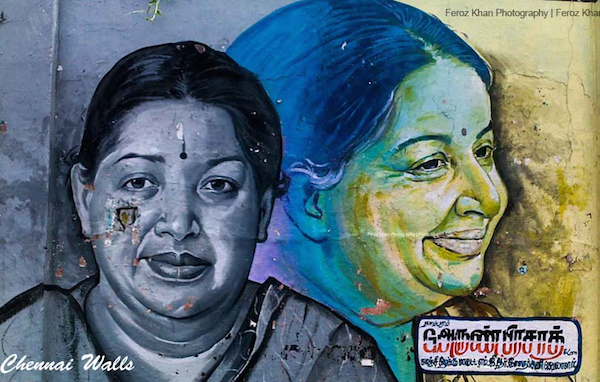
Jayalalithaa Jayaram, commonly known by just her first name, is the current Chief Minister of the state of Tamil Nadu and leader of the All India Anna Dravida Munnetra Kazagam (AIADMK). Prior to joining politics, she was a famous movie star in the south. The late M.G.Ramachandran, a superstar of South Indian movie industry who also went on to become the chief minister of Tamil Nadu for three terms, had a deep influence on Jayalalithaa’s political life.
Born into a Brahmin Kannadiga family, Jayalalithaa making it big in the landscape of Dravidian politics defies conventional wisdom. But then conformism is something that she can never be accused of. In an era when women were supposed to wear saree on screen, she was said to be the first to don skirts on celluloid. Over the years she has built herself into such a political giant that in an era of coalition politics, she has become indispensable for the fortunes of any ruling coalition. No wonder every political party tries to court her before the general elections and this time it is no different.
Jayalalithaa’s political life has been beset with detractors and her political adversary in the state, Karunanidhi and his party DMK, has often given her a hard time. Be it the first time when she entered the Tamil Nadu assembly in 1989 as Leader of Opposition, or in 1996 when the ruling DMK filed corruption charges against her, cases which she is still fighting in the courts. But Jayalalithaa has emerged stronger than ever before with every crisis she has faced and such is her clout that even a tea-party that she organizes is watched closely by political pundits and observers to make predictions about her next political moves. A voracious reader who counts Jane Austen, Bernard Shaw and Oscar Widle among her favourite authors, she is expected to play a pivotal role in the upcoming elections.


